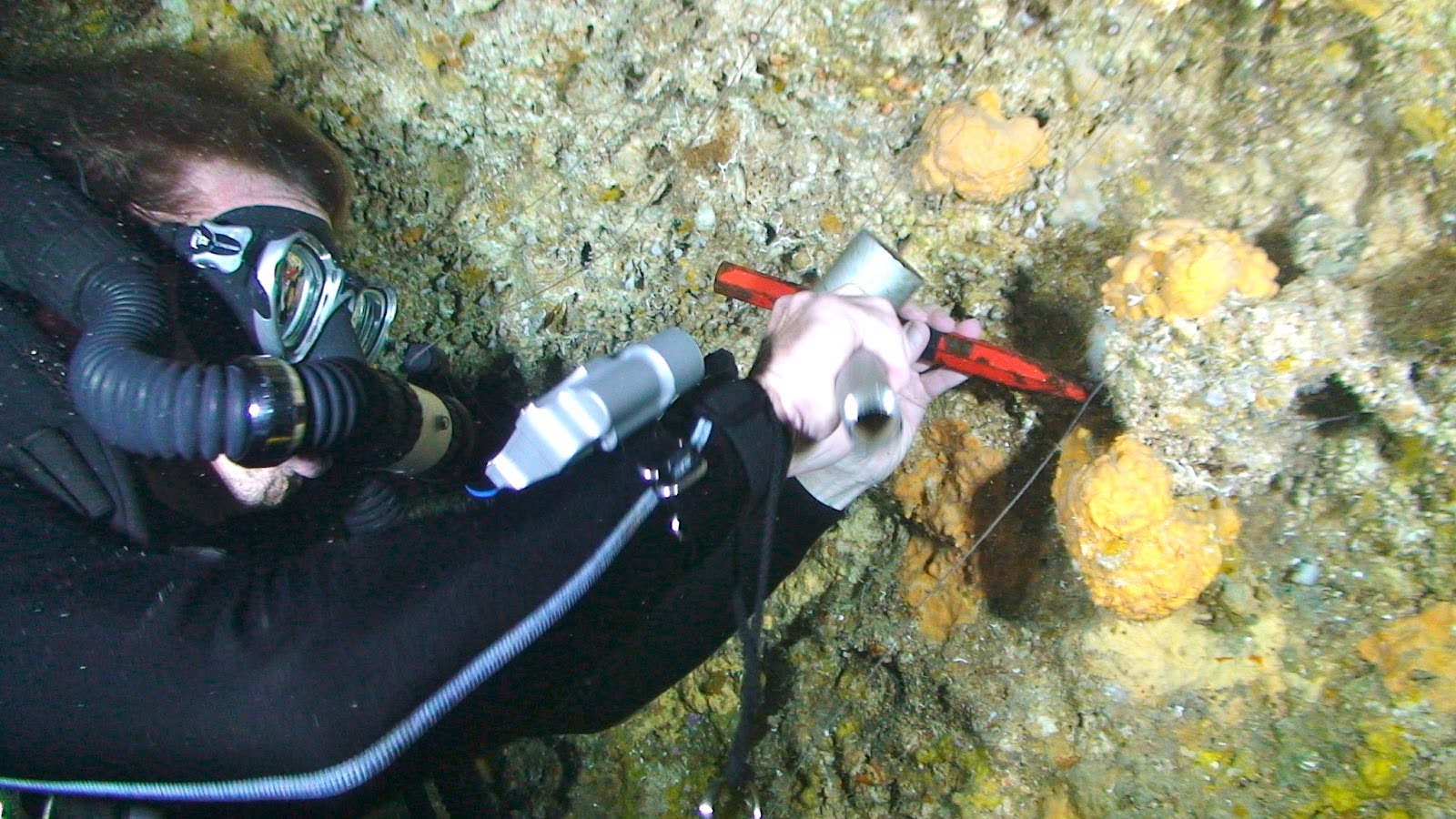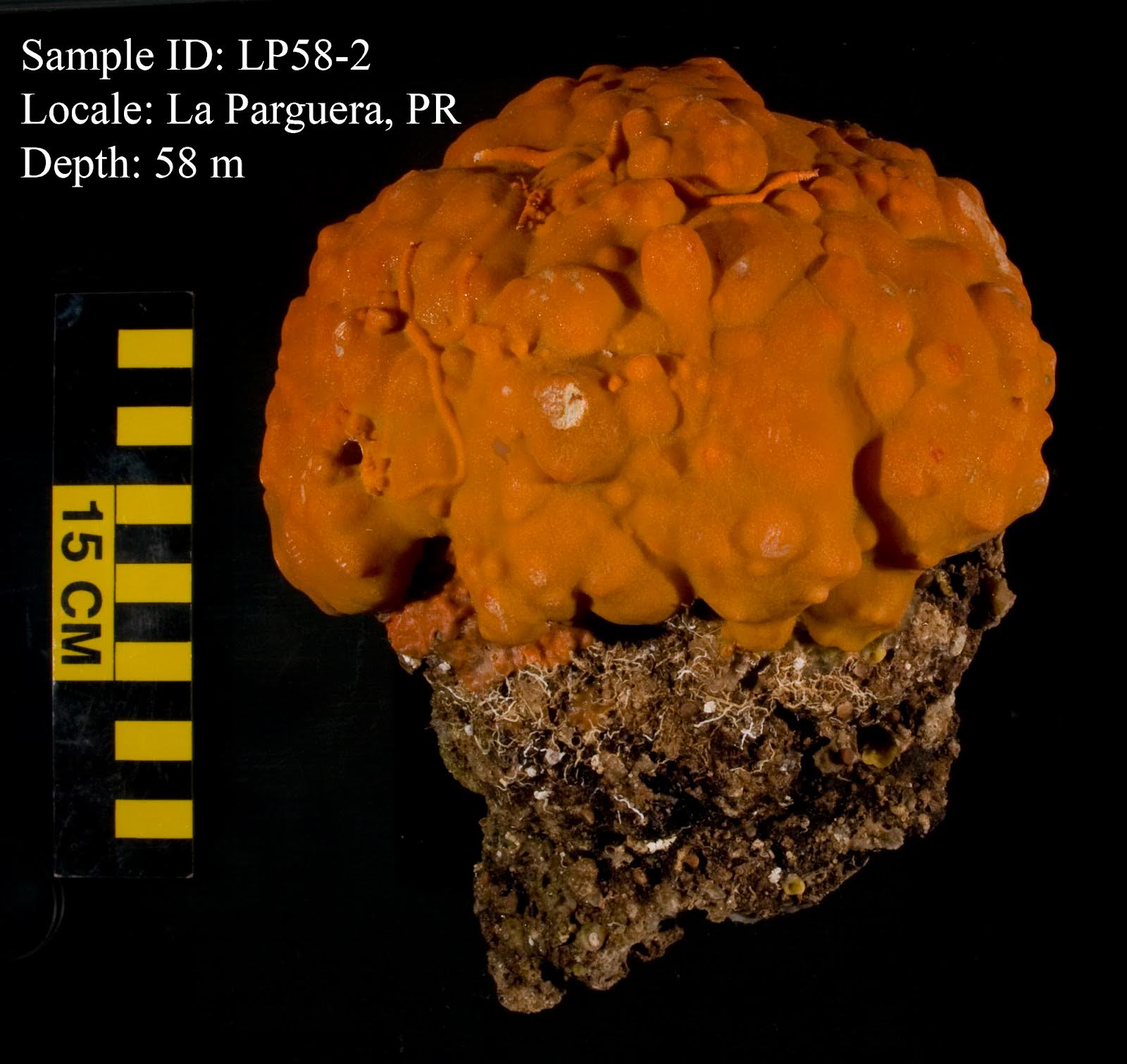
A newly published study used an unlikely source to determine a more accurate baseline for pre-industrial global temperature — sea sponges. Chemical analyses from the sponges suggest that climate change has resulted in a larger increase in the Earth’s temperature than previously thought. Calculations showed that greenhouse gas emissions from human activities have resulted in a 1.7℃ temperature increase since 1860, 0.5℃ higher than previous estimations.
Sclerosponges are soft sponges with hard skeletons made of calcium carbonate. As the sponge grows, a small amount of strontium from the surrounding seawater is incorporated into the calcium carbonate skeleton and the rate at which the sponges incorporate strontium from the water varies with temperature. Therefore, the ratios of the elements strontium and calcium in successive layers of sponge can be used to reconstruct what sea temperature was in the past, and track changes over time. The study, partially funded by NCCOS and NOAA’s Office of Ocean Exploration and Research, used specimens of the sclerosponge Ceratoporella nicholsoni from the eastern Caribbean. This type of sponge can live to be about 500 to 1,000 years old. The samples were collected by hand from the upper-ocean mixed layer (depths between 33 and 91 meters), providing a more stable and representative record of ocean temperatures compared to the surface layer. This is the largest collection of sclerosponges in existence. Additionally, the eastern Caribbean is not directly impacted by temperature fluctuations due to El Niño/La Niña cycles or Atlantic meridional overturning circulation, making it an ideal region to monitor global trends in sea surface temperature.
Prior to this study, many estimates of pre-industrial temperatures were pieced together from ship-based records dating back to the 1850s, but these values contain large uncertainties, limited coverage, and inconsistencies within datasets. It wasn’t until the latter half of the 20th century that reliable values were routinely recorded in the International Comprehensive Atmosphere Data Set. Scientists from the Universities of Western Australia, Indiana State, and Puerto Rico-Mayaguez utilized the chemical composition of sea sponges to more accurately reconstruct past temperatures with samples collected as part of the Deep Coral Reef Ecosystem Studies (Deep-CRES) project.

